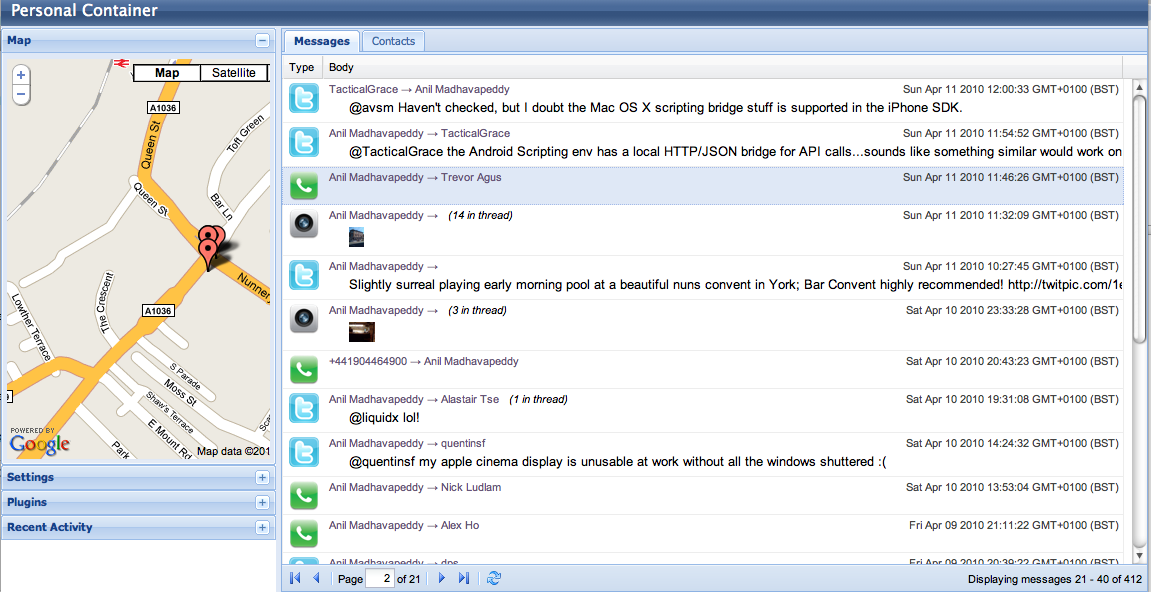We’ve been hacking away on fleshing out the App Engine node for personal containers. We’re building this node first because, crucially, deploying an App Engine VM is free to anyone with a Google account. The service itself is limited since you can only respond to HTTP or XMPP requests and do HTTP fetches, and so its primary use is as an always-on data collection service with a webmail-style UI written using extjs.
Personal containers gather data from a wide variety of sources, and normalise them into a format which understands people (address book entries, with a set of services such as e-mail, phone, IM and online IDs), places (GPS, WOEID), media (photos, movies) and messages (Tweets, emails, Facebook messages). I’ll post more about the data model behind personal containers in a follow-up as the format settles.

The App Engine node has a number of plugins to gather data and aggregate them into a single view (see screenshot). Plugins include:
- iPhoto extracts location (via EXIF), people present (associated via faces), and of course, the actual photograph.
- Adium logs all IMs into a threaded chat view. - iPhone uses the backup files on a Mac to extract SMS messages, phone call records (and it could also get photographs and browsing history, although it currently doesn’t). An AppEngine tracker can also use FindMyIPhone to poll your iPhone regularly to keep track of your location without publishing it to Google or Yahoo (and hopefully in iPhone 4.0, we can operate as a background service at last!).
- Twitter runs directly on AppEngine (authenticated via OAuth) and synchronizes with a Twitter feed.
- SyncServices hooks into the MacOS X sync framework and initially subscribes to Address Book updates. This seems to be the first open-source sync alternative to the expensive Mobile Me, as far as I can tell. I’m planning to expand this to also subscribe to the full set of sync information (e.g. calendars).
I'm switching tacks briefly; we received an Amazon Research Grant recently and I’m building a node that runs as a Linux server to act as a longer-term archival and search server. This is being written in OCaml and uses Tokyo Cabinet (with Jake Donham’s excellent bindings) and so should be speedy and a useful alternative implementation of the HTTP REST interface. The plan is to automatically synchronize meta-data across all the nodes of a personal container, but store large and historical data away from expensive cloud storage such as App Engine.
There are lots more plugins in development, such as Foursquare and Gowalla OAuth collectors, an Android mobile application to upload location and contacts information, and Google GData synchronization. If you’re interested in one of these or something else, please do get in touch or just fork the project and start hacking!
